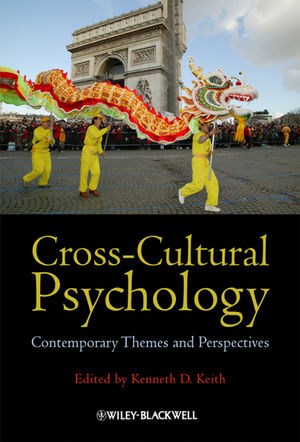Cross-Cultural Psychology: Contemporary Themes and PerspectivesISBN: 978-1-4051-9804-2
Hardcover
600 pages
October 2010, Wiley-Blackwell
 This is a Print-on-Demand title. It will be printed specifically to fill your order. Please allow an additional 15-20 days delivery time. The book is not returnable.
|
||||||
This book situates the essential areas of psychology within a cultural perspective, exploring the relationship of culture to psychological phenomena, from introduction and research foundations to clinical and social principles and applications." (News Blaze, 1 March 2011)"Cross-Cultural Psychology will be of value not only to students of psychology and experienced psychologists, but also to practitioners and researchers in other disciplines where their work requires them to relate to and understand people. As one of the chapter author's comments, ‘increasingly, we hear that we are living in a global community'. Psychology has surely to embody the cultural inclusiveness and sensitivity to reflect this in order to respond to the challenges of living in and understanding the greater multi-cultural community that is humanity." (Inclusion News, February 20110)
"In sum, this book contains an extraordinary mixture of the rich and stimulating and the pedestrian. The question arises for what kind of readership it is intended. The editorial introduction appears to assume that the prospective reader knows next to nothing about cross-cultural psychology, Moreover the editor, in both his preface and after-word, addresses 'the student reader', seeming to imply a text-book function." (Metapsychology, December 2010)
"How can psychology teachers incorporate more global research and concepts into their existing or new courses? For the growing number of teachers who seek to do this, this reader is a timely gem. Editor Ken Keith is himself a master teacher, and his introductory chapter on cross-cultural psychology segues into 29 original essays by some leading U.S. and non-USA contributors, covering a wide swath of 10 specialties—including social, developmental, cognition, gender. This cutting-edge volume seems well-suited to stand alone, or to complement a more traditional textbook for survey courses."—Harold Takooshian, Fordham University



